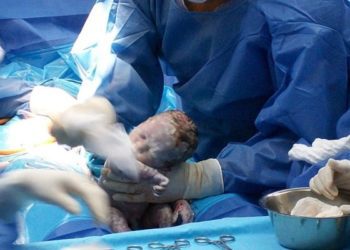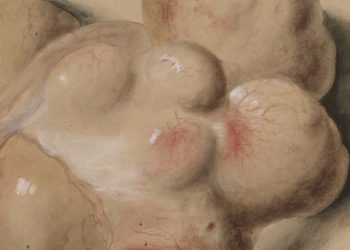Caesarian section delivery due to dystocia associated with decreased vitamin D level
1. Compared to women who had spontaneous vaginal deliveries, women who underwent caesarian sections due to dystocia had decreased vitamin D level.
Evidence Rating Level: 3 (Average)
Dystocia, otherwise known as difficult or obstructed labor, is either directly or indirectly responsible for 30-60% of cesarean deliveries (C-sections). Vitamin D insufficiency during pregnancy is common and may be involved with labor contractions either through activating intracellular vitamin D receptors (VDR) in the myometrium and/or by affecting the availability of calcium for muscle contraction. This case-control study examined the associations of vitamin D levels in primiparous women in a Danish hospital who either gave birth by C-section following spontaneous onset of labour (cases, n=30) or by spontaneous vaginal delivery (controls, n=30). Women giving birth by C-section had lower levels of serum 25-hydroxyvitamin D versus controls (53.1 nmol/L vs. 69.9 nmol/L, p=0.02). There was no statistically significant difference between parathyroid hormone levels between cases and controls (2.25 pmol/L and 2.38 pmol/L, respectively). Additionally, though 78% of women were taking at least 10 µg (400 IU) vitamin D daily, 43% had a vitamin D sufficiency (25-hydroxyvitamin D <50 nmol/L). Of note, there were significant differences in background characteristics between cases and controls for maternal BMI at term (28.7 kg/m2 vs. 26.5 kg/m2, p<0.009), duration of gestation (40 weeks + 4 days vs. 40 weeks + 0 days, p=0.02), birth weight (3791 g vs. 3491 g, p=0.003) and use of epidural analgesia during labor (43.3% vs. 10%, p=0.004). Controlling for this last factor, however, showed no impact on the results. Ultimately, results of this study may bring attention to the role of vitamin D during childbirth and appropriate supplementation for pregnant mothers. Nonetheless, further studies should be done with a greater number of patients and across multiple study centres.
Click to read the study in PLOSONE
Image: PD
©2020 2 Minute Medicine, Inc. All rights reserved. No works may be reproduced without expressed written consent from 2 Minute Medicine, Inc. Inquire about licensing here. No article should be construed as medical advice and is not intended as such by the authors or by 2 Minute Medicine, Inc.

![Maternal cell-free DNA sequencing superior to standard aneuploidy screening [CARE Study]](https://www.2minutemedicine.com/wp-content/uploads/2014/02/47-karyotype-350x250.jpg)





